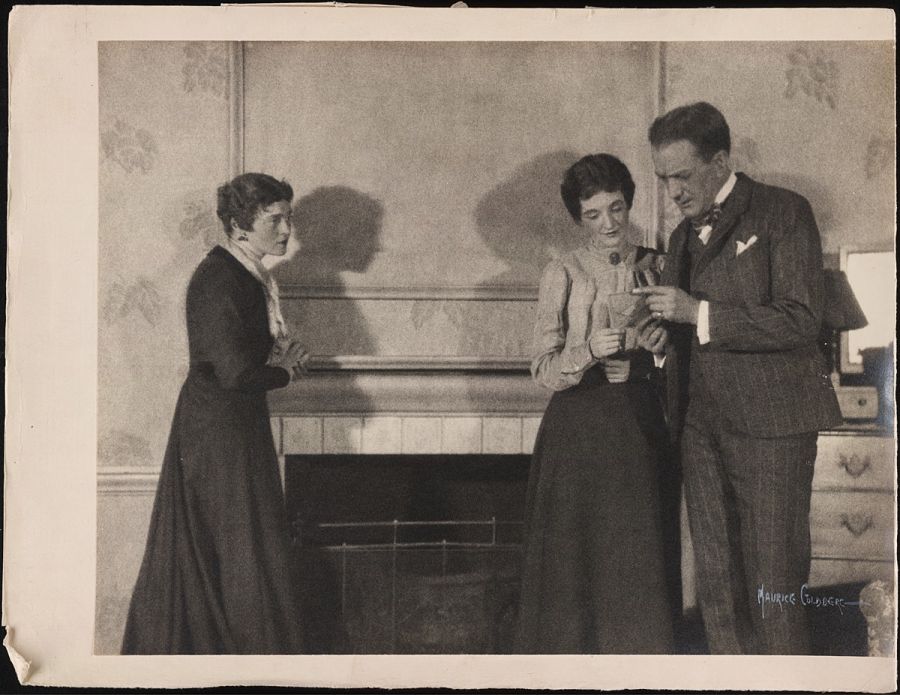185 YEARS AGO (1830)
Edwin Forrest brings Metamora; or, The Last of the Wampanoags, to Philadelphia’s Chestnut Street Theatre for the first time. John Augustus Stone’s play, which debuted the previous year, was the winner of Forrest’s contest calling for “a Tragedy, in five acts, of which the hero or principal character shall be an aboriginal of this country.” Although Metamora features the white Forrest in the title role and arguably exacerbates antipathy toward American Indians, the work is the first of several during this period to depict a Native American figure as heroic.
180 YEARS AGO (1835)
The National Theatre opens its doors in Washington, D.C., with a performance of The Man of the World and the musical farce Turn Out. The auditorium and main drape are adorned with images of the Declaration of Independence and George Washington, and the theatre will host most U.S. chief executives throughout its history, starting with president Andrew Jackson.
150 YEARS AGO (1865)
Singer and actor Fay Templeton, whose career will range from light opera to burlesque to Broadway, is born in Little Rock, Ark. The daughter of theatre manager John Templeton, as an infant she appears onstage, and she will have her first speaking role at age 5. She quickly makes a name for herself, and she will become known as the Queen of American Burlesque.
130 YEARS AGO (1885)
Theatregoers at a Sacramento, Calif., performance of Rip Van Winkle won’t run the risk of sleeping through the show—many fear for their safety when plaster starts falling from above. The fright turns to laughter, however, when they realize what caused the disruption: A stagehand in charge of the thunder sound effects has put his leg through the ceiling.
90 YEARS AGO (1925)
Marita Bonner’s autobiographical “On Being Young—a Woman—and Colored” wins the essay writing competition of the NAACP’s Crisis magazine, which publishes the essay in this month’s issue. In the next five years, Bonner will pen more than 20 short stories, plus the experimental plays The Pot Maker (1927), The Purple Flower (1928), and Exit, An Illusion (1929).
85 YEARS AGO (1930)
Alison’s House by Susan Glaspell premieres at New York City’s Civic Repertory Theatre, featuring the theatre’s founder, Eva Le Gallienne. The following year, the piece will make Glaspell the second woman to receive the Pulitzer Prize in Drama. (The first was Zona Gale, who earned the honor for Miss Lulu Bett in 1921.) The triumph comes as a surprise, and the play will be called “the rankest outsider ever to win” the award.
80 YEARS AGO (1935)
At the Broadhurst Theatre on Broadway, Helen Hayes opens in the biggest hit of her career, Victoria Regina, in which she plays the eponymous monarch from childhood to her senior years. The production will run 515 performances and garner a return engagement in 1938. Hayes’s obituary in the New York Times will credit the play as her “greatest stage success.”
50 YEARS AGO (1965)
Peter Brook’s production of Peter Weiss’s The Persecution and Assassination of Jean-Paul Marat as Performed by the Inmates of the Asylum of Charenton Under the Direction of the Marquis de Sade makes its Broadway debut at the Martin Beck Theatre (later renamed the Al Hirschfeld). Marat/Sade, one of the first plays in the U.S. to contain full-frontal nudity, will win four Tonys, including the prizes for best play and best director.
45 YEARS AGO (1970)
The pre–NYC tour of the Repertory Theatre of Lincoln Center’s Lovely Ladies, Kind Gentlemen ends with a run at the San Francisco Civic Light Opera. This stop, like the previous ones, is picketed by Asian-American actors—more than half of the Asian roles in this musical adaptation of The Teahouse of the August Moon are played by white performers in yellowface, and Asians were denied opportunities to audition for the lead.
35 YEARS AGO (1980)
Beth Henley’s Crimes of the Heart, which debuted the previous year at Actors Theatre of Louisville in Kentucky, bows at Manhattan Theatre Club. MTC will go on to produce several more works by Henley in the coming decades, and the show will transfer to Broadway and earn Henley a Pulitzer.


